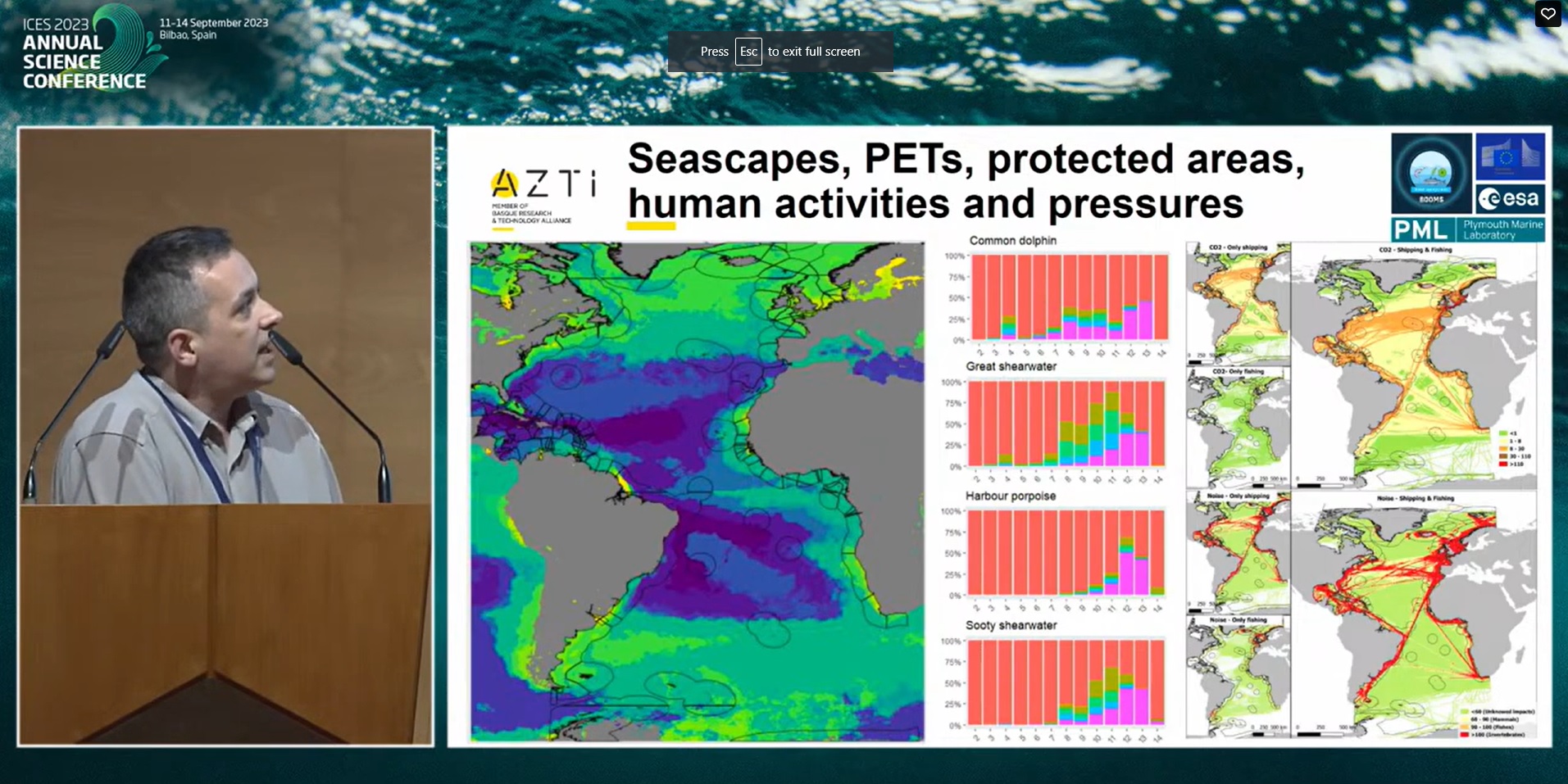Project update | 15 September 2023
ICES Annual Science Conference 2023
Dr Jose A. Fernandes recently presented BOOMS work at the annual ICES Annual Science Conference 2023.

He presented a preview of the seascapes work within BOOMS within a talk entitled: 'Evaluating trade-offs in ecosystem-based management with artificial intelligence and big data'
This was under the theme session L: Advancing scientific support for evaluating trade-offs in ecosystem-based management on Wednesday the 13th September.
Video link
https://whova.com/portal/icesa_202309/videos/4YDN3UzN4kTO/
Jose's presentation can be found at 2:15:30
Abstract
Gotzon Mandiola, Igor Granado, Izaro Goienetxea, Arantza Murillas, Ibon Galparsoro, Raul Prellezo
Decision support tools (DST) are software-based simulative and analytical tools that provide in a systematic and objective manner, support in an evidence-based decision-making process for alternative management plan development. DSTs based on Bayesian networks are presented that allows exploring management measures trade-offs under fishing and climate change scenarios. Bayesian networks have the advantage of being easier to interpret and extract knowledge from than other artificial intelligence approaches, due to their graphical representation and their probabilistic foundations in domains of high uncertainty. The DSTs can be used to inform about interactions between different ecosystem components and human activities. The approach not only allows considering environmental and biological uncertainties but also economic valuation uncertainty. Two examples of DSTs are presented. Firstly, a nonspatial DST to inform management decisions on the ecosystem services trade-offs that arise if the exploitation of mesopelagic resources begins in the Bay of Biscay. The tool is used to explore fishing scenarios of mesopelagic species in provisioning, cultural and regulating services. The high uncertainty on regulating services valuation is a key driver of changes in the total value of the ecosystem in the region. The model also allows the exploration of the trade-offs of other decisions beyond mesopelagic fishing. For example, the preservation and maximization of the value of two key food provisioning species with a long tradition in the Basque area (anchovy and tuna). Increasing the exploitation of the marine mammal’s tourism value reduces the chances of lower values in the provisioning and cultural ecosystem services. However, there are trade-offs (e.g., small vs large pelagic fish) affecting the chances of the highest total and ecosystem services value. The second is a spatially explicit DST example applied to inform restoration and conservation measures under climate change and restoration scenarios in a Basque estuary. This example follows the DPSIR approach to build the conceptual model whereas the implementation is based on the combination of empirical data, literature review and expert knowledge. Both are examples of DSTs that respond to the needs for ecosystem-based management, including the ecosystem services approach and the implementation of nature-based solutions.
View the conference website